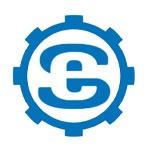Jobs and Careers in the Communication Industry
Jobs and Careers in the Communication Industry
The electronics industry is roughly divided into four major specializations. The largest in terms of people employed and the dollar value of equipment purchased is the communications field, closely followed by the computer field. The industrial control and instrumentation fields are considerably smaller. Hundreds of thousands of employees are in the communication field, and billions of dollars’ worth of equipment is purchased each year Jobs and Careers in the Communication Industry.
The growth rate varies from year to year depending upon the economy, technological developments, and other factors. But, as in most areas in electronics, the communication field has grown steadily over the years thanks to the Internet and the exploding cellular industry, creating a relatively constant opportunity for employment. If your interests lie in communication, you will be glad to know that there are many opportunities for long-term jobs and careers. The next section outlines the types of jobs available and the major kinds of employers.
Types of Jobs
The two major types of technical positions available in the communication field are engineer and technician.
Engineers:
Engineers design communication equipment and systems. They have bachelor’s (B.S.E.E.), master’s (M.S.E.E.), or doctoral (Ph.D.) degrees in electrical engineering, giving them a strong science and mathematics background combined with specialized education in electronic circuits and equipment. Engineers work from specifications and create new equipment or systems, which are then manufactured.
Many engineers have a bachelor’s degree in electronics technology from a technical college or university. Some typical degree titles are bachelor of technology (B.T.), bachelor of engineering technology (B.E.T.), and bachelor of science in engineering technology (B.S.E.T.).
Bachelor of technology programs
are sometimes extensions of two-year associate degree programs. In the two additional years required for a bachelor of technology degree, the student takes more complex electronics courses along with additional science, math, and humanities courses. The main difference between the B.T. graduate and the engineering graduate is that the technologist usually takes courses that are more practical and hands-on than engineering courses. Holders of B.T. degrees can generally design electronic equipment and systems but do not typically have the depth of background in analytical mathematics or science that is required for complex design jobs. However, B.T. graduates are generally employed as engineers. Although many do design work, others are employed in engineering positions in manufacturing and field service rather than design Jobs and Careers in the Communication Industry.
Some engineers specialize in design; others work in manufacturing, testing, quality control, and management, among other areas. Engineers may also serve as field service personnel, installing and maintaining complex equipment and systems. If your interest lies in the design of communication equipment, then an engineering position may be for you Jobs and Careers in the Communication Industry.
Although a degree in electrical engineering is generally the minimum entrance requirement for engineers’ jobs in most organizations, people with other educational backgrounds (e.g., physics and math) do become engineers. Technicians who obtain sufficient additional education and appropriate experience may go on to become engineers.
Technicians:
Many technicians are educated in military training programs. Most technicians have an average of two years of formal post–high school education and an associate degree.Technicians have some kind of postsecondary education in electronics, from a vocational or technical school, a community college, or a technical institute.
Common degrees are associate in arts (A.A.), associate in science (A.S.) or associate of science in engineering technology or electronic engineering technology (A.S.E.T. or A.S.E.E.T.), and associate in applied science (A.A.S.). The A.A.S. degrees tend to cover more occupational and job-related subjects; the A.A. and A.S. degrees are more general and are designed to provide a foundation for transfer to a bachelor’s degree program.
associate degree
Technicians with an associate degree from a community college can usually transfer to a bachelor of technology program and complete the bachelor’s degree in another two years. However, associate degree holders are usually not able to transfer to an engineering degree program but must literally start over if the engineering career path is chosen Jobs and Careers in the Communication Industry.
Technicians are most often employed in service jobs. The work typically involves equipment installation, troubleshooting and repair, testing and measuring, maintenance and adjustment, or operation. Technicians in such positions are sometimes called field service technicians, field service engineers, or customer representatives.
Technicians can:
also be involve in engineering. Engineers may use one or more technicians to assist in the design of equipment. They build and troubleshoot prototypes and in many cases actually participate in equipment design. A great deal of the work involves testing and measuring. In this capacity, the technician is know as an engineering technician, lab technician, engineering assistant, or associate engineer Jobs and Careers in the Communication Industry.
Technicians are also employ in manufacturing. They may be involved in the actual building and assembling of the equipment, but more typically are concerned with final testing and measurement of the finished products. Other positions involve quality control or repair of defective units.
Other Positions:
There are many jobs in the communication industry other than those of engineer or technician. For example, there are many outstanding jobs in technical sales. Selling complex electronic communication equipment often requires a strong technical education and background. The work may involve determining customer needs and relate equipment specifications, writing technical proposals, making sales presentations to customers, and attending shows and exhibits where equipment is sold. The pay potential in sales is generally much higher than in the engineering or service positions Jobs and Careers in the Communication Industry.
Another position
is that of technical writer. Technical writers generate the technical documentation for communication equipment and systems, producing installation and service manuals, maintenance procedures, and customer operations manuals. This important task requires considerable depth of education and experience.
Finally, there is the position of trainer. Engineers and technicians are often use to train other engineers and technicians or customers. With the high degree of complexity that exists in communication equipment today, there is a major need for training. Many individuals find education and training positions to be very desirable and satisfying. The work typically involves developing curriculum and programs, generating the necessary training manuals and presentation materials, creating online training, and conducting classroom training sessions in-house or at a customer site.
Major Employers
The overall structure of the communication electronics industry is show in Fig. 1-18. The four major segments of the industry are manufacturers, resellers, service organizations, and end users.
Manufacturers:
It all begins, of course, with customer needs. Manufacturers translate customer needs into products, purchasing components and materials from other electronics companies to use in creating the products. Engineers design the products, and manufacturing produces them. There are jobs for engineers, technicians, salespeople, field service personnel, technical writers, and trainers.
Resellers:
Manufacturers who do not sell products directly to end users sell the products to reselling organizations, which in turn sell them to the end user. For example, a manufacturer of marine communication equipment may not sell directly to a boat owner but instead to a regional distributor or marine electronics store or shop. This shop not only sells the equipment but also takes care of installation, service, and repairs. A cellular telephone or fax machine manufacturer also typically sells to a distributor or dealer who takes care of sales and service. Most of the jobs available in the reselling segment of the industry are in sales, service, and training.
Service Organizations:
These companies usually perform some kind of service, such as repair, installation, or maintenance. One example is an avionics company that does installation or service work on electronic equipment for private planes. Another is a systems integrator, a company that designs and assembles a piece of communication equipment or more often an entire system by using the products of other companies. Systems integrators put together systems to meet special needs and customize existing systems for particular jobs. Other types of service organization are the communications services providers like cellular network carriers (e.g., AT&T,
Verizon), Internet providers, cable TV companies, and Internet web companies (e.g., Google, Yahoo, Amazon).
Figure 1-18: Structure of the communication electronics industry.
End Users:
The end user is the ultimate customer—and a major employer. Today, almost every person and organization is an end user of communication equipment. The major categories of end users in the communication field are:
- Telephone companies
- Radio users—mobile, marine, aircraft, etc.
- Radio and TV broadcast stations and cable TV companies
- Business and industry users of satellites, networks, etc.
- Transportation companies (airlines, shipping, railroads)
- Government and military
- Internet companies
- Personal and hobby
- Consumers
There are an enormous number of communication jobs with end users. Most are of the service type: installation, repair, maintenance, and operation of equipment.
Licensing and Certification
A good way to validate your knowledge of communications electronics is to obtain a relevant license or certification. Some jobs require an FCC license to ensure your competence in electronics and knowledge of the related rules and regulations. Otherwise, the main benefit of a license or certification is to prove your knowledge and skills to a prospective employer. Such a credential is an added bonus to any A.A.S. or B.S.E.T. degree you may get. For some employers, a license or certification may be acceptable in lieu of a degree.
Licensing and certification typically require taking an exam on communications topics. The FCC exam includes tests on rules and regulations as well as electronic fundamentals and communications circuits, equipment, and practices. Most certifications also have exams that cover the same electronic fundamentals and communications circuits, equipment, and practices. Some certifications require a specific amount of job experience.
Listed below are some of the licenses and certifications available for communications:
- FCC General Radiotelephone Operators License (GROL)—Two-part exam on rules and regulations and communications electronics. An optional exam on radar is available. No job experience is require.
- International Society of Certified of Electronic Technicians (ISCET)—This organization offers several basic certifications in electronic fundamentals as well as a journeyman certification in a variety of electronic specializations including communications. No job experience is require.
- Electronic Technicians Association International (ETA-I)—This organization offers a wide range of certifications on electronics with specializations in electronic fundamentals, communications, radar, fiber optics, and several others.
- The International Association for Radio, Telecommunications and Electromagnetics (iNARTE)—This organization offers multiple certifications in all phases of communications, including telecommunications, electromagnetic compatibility, and wireless devices at both the technician and the engineering level. These certifications require various education levels (degrees) and job experience as well as exams.
- Cisco—This company is a major supplier of networking and wireless equipment and offers certifications in many networking-related areas. An example is the Cisco Certified Network Associate (CCNA) Wireless. Cisco certification is widely recognize throughout industry.
other certifications
There are other certifications for a variety of specialties that you will discover. Many of the certifying organizations, such as ETA-I, ISCET, and iNARTE, are also grant authority to give the FCC GROL exams. The GROL is probably the best overall credential to have for wireless jobs, and you may wish to complement it with a certification appropriate to the work you are seeking.
Certification and licensing is an excellent way to prove to yourself and any employer that you are knowledgeable and competent in communications. Give serious consideration to this opportunity.

.png)


.png)

